
Researcher Profile
Consuelo A. Bojorquez Falla
Universidad Del Valle De Guatemala
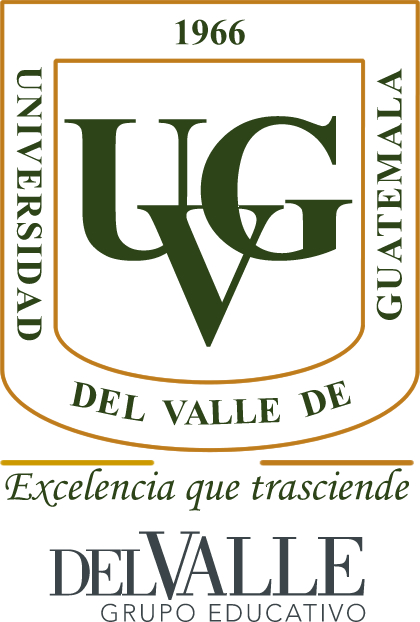
Since I was a child, my family highlight my skills to teaching and this guided me to study for been a Bilingual Spanish-English Pre-School Teacher, then I continue studying at the Universidad del Valle de Guatemala (UVG) a technical specialization in Learning Problems and later Psychology, in both careers I obtained a scholarship from the university Foundation. I was impressed and fascinated by everything related to psychological evaluation, which is the reason I searched for opportunities and received a scholarship from the Carolina Foundation to study the master’s degree in Evaluation and Measurement of Human Behavior at the Rovira i Virgili University in Spain. For my Master’s graduation project, I chose to research about Executive Functions and since then it is the topic that has guided my interest to learn more, and was the reason I started the Master’s program in Clinical Neuropsychology in the UVG, to investigate the functioning of the brain and its impact on executive behavior, the research project was “Rehabilitation of Executive Functions in patients with Acquired Brain Injury”.
Due to my academic training and career as a university teacher, I obtained a scholarship to the PhD in Psychology program with a double degree at the Universidad Internacional Iberoamericana de México and Universidad San Carlos de Guatemala, following the Neuropsychology as a line of research. Right now, I am currently developing my research related to Inhibition, Metacognition and Academic Performance in university students with High Intellectual Abilities.
Before joining the International Metacognition Group I had the opportunity to collaborate, thanks to my mentor Dr. Claudia García de la Cadena, in the Symposium on Executive Functions and Cognition with the topic “Cognitive flexibility, high abilities and metacognitive judgments in university students: pilot study”; as well as in the Metacognition Monograph with the article “High intellectual capacities and metacognition in adults”, both projects carried out together with Dr. García de la Cadena. My motivation to investigate, explore and evaluate has led me to carry out research projects that I have presented at both national and international conferences.
I started working as a pre-school teacher, then as a school counselor, having the opportunity to be part of the Board of Directors of the Association of School Counselors of Guatemala for 7 years. Upon graduating as a Psychologist, I began carry out psychoeducational evaluations and interventions since 2010, nowadays I do Neuropsychological evaluations throughout the life cycle.
At the end of 2012 I was invited to be a teacher at the UVG in the Psychology program and since then I have taught courses about Psychological Assessment and other related to Neurosciences. Throughout these years I have also collaborated as a professor at others private universities in Guatemala teaching courses in Neuropsychology, Neuropsychological Assessment and Executive Functions.
Definitely this journey was blessed by God and supported by my husband, family, friends and colleagues who have encouraged me to be a better professional every day. In 2024 I will begin directing research projects at the Neuroscience Laboratory at Universidad del Valle de Guatemala, which fills me with excitement, motivation and commitment to contribute to the growth of Neuropsychology in my country.
Researchgate: https://www.researchgate.net/profile/Consuelo-Bojorquez
Consuelo A. Bohorquez Falla
Since I was a child, my family highlight my skills to teaching and this guided me to study for been a Bilingual Spanish-English Pre-School Teacher, then I continue studying at the Universidad del Valle de Guatemala (UVG) a technical specialization in Learning Problems and later Psychology, in both careers I obtained a scholarship from the university Foundation. .
Erika A. Alvarez-Atencio
The study of the human being, how they learn, and their interaction with the environment has been a subject of great interest to me since my adolescence. After completing high school, I decided to pursue my university studies at the University of Valparaíso, majoring in Psychology. During my university years, my interest in cognitive sciences and the learning processes of the human being flourished.
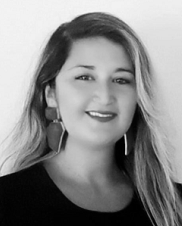
Researcher Profile
Erika A. Alvarez-Atencio
Universidad Viña del Mar, Chile
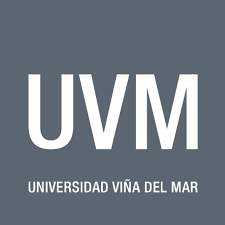
The study of the human being, how they learn, and their interaction with the environment has been a subject of great interest to me since my adolescence. After completing high school, I decided to pursue my university studies at the University of Valparaíso, majoring in Psychology. During my university years, my interest in cognitive sciences and the learning processes of the human being flourished.
After graduating, throughout my professional career, I began working in areas related to education and neuropsychology. It was during this period that I started engaging in teaching activities, prompting me to pursue postgraduate studies. This led me to enroll in the Master’s program in Higher Education Teaching at the Universidad Andrés Bello, where I later continued as a lecturer in the Secondary Education Program for Graduates, led by Dr. Margot Recabarren, a great mentor and friend in my professional development.
I formally started my academic career at the Universidad Viña del Mar, teaching in the Psychology program. Over these years, I have been dedicated to teaching, management, and research, with a notable focus on first-year students, creating various instances of pedagogical innovation to foster critical thinking, a comprehensive understanding of the psychologist’s role, and the value of psychology as a science.
Driven by my interest in understanding the motivational processes underlying learning, I began my Ph.D. in Psychology at the Universidad Complutense de Madrid. During this period, I actively participated in the development of research projects, particularly those related to the development of oral competence in educational contexts and teacher training processes in Chile, using digital platforms such as EVALOE-SSD. This collaboration between the Universidad Complutense de Madrid and the University of Barcelona resulted in a scientific publication in a prestigious journal in the field of assessment and diagnosis in psychology, with findings presented at discipline-related seminars and conferences.
Currently, the focus of my research is on the development of metamotivation, an emerging line within psychology. This has allowed me to undertake an international stay at the Lynch School of Education and Human Development at Boston College in Boston, United States, where I have trained and collaborated on various research projects with Dr. David Miele, an international reference in this field. My research aims to study the role played by “metamotivational feelings” in the processes of control and regulation of human motivation, particularly in learning contexts.
My commitment to scientific dissemination, learning, and society has enabled me to merge my academic interests with my personal convictions, continually presenting new professional challenges in combination with academic excellence.
Researchgate: https://www.researchgate.net/profile/Erika-Alvarez-Atencio

Researcher Profile
Carlos Renzo Rivera Calcina
Universidad Católica de San Pablo, Perú

I hold a degree in Psychology and a Master’s degree in Public Health with a concentration in Epidemiology from the Universidad Nacional de San Agustín. Additionally, I have a specialization in sampling and probabilities, descriptive and inferential statistics from the University of California Berkeley (online), as well as in Gender Statistics from the Economic Commission for Latin America and the Caribbean (ECLAC), and another one in statistics for social sciences from the Universidad Católica San Pablo (UCSP). Furthermore, I strive to continuously update my knowledge in my field by taking courses in R software for data cleaning, graphical data presentation, linear and logistic regressions, and structural equations at Datacamp. Currently, I am professor of Psychometrics, Research Methodology, and Thesis Seminar II at the Department of Psychology of the UCSP.
I have published approximately 50 scientific articles in national and international journals indexed in Scielo, Scopus, or Web of Science. I have also authored about five book chapters with national and international authors. I have served as principal investigator or co-investigator in several internal projects at the Universidad Católica San Pablo (UCSP). My main areas of research include antisocial behaviors in adolescents, family violence, violence against women, and psychometrics. Although I have also published some articles related to metacognition, phonological awareness, and reading processes. Currently, I am the coordinator of the Violence task force at the Interamerican Society of Psychology (SIP), as well as the Psychological Assessment task force. I am also an international affiliated member of the American Psychological Association (APA).
Researchgate: https://www.researchgate.net/profile/Renzo-Rivera
ORCID: https://orcid.org/0000-0002-5897-9931
Scholar Google: https://scholar.google.com.pe/citations?user=KLRDzMsAAAAJ&hl=es&authuser=1
Carlos Renzo Rivera Calcina
I hold a degree in Psychology and a Master’s degree in Public Health with a concentration in Epidemiology from the Universidad Nacional de San Agustín. Additionally, I have a specialization in sampling and probabilities, descriptive and inferential statistics from the University of California Berkeley (online), as well as in Gender Statistics from the Economic Commission for Latin America and the Caribbean (ECLAC), and another one in statistics for social sciences from the Universidad Católica San Pablo (UCSP).
Alicia Elvira Vélez García
Perhaps since I studied high school (and perhaps from an early age), without knowing it, I observed the behavior of people, their actions, their emotions and their behavior in general. With absolutely no professional interest and also without knowing it, I surely began to trace my steps towards psychology, since indeed my university choice was the career of Psychology.
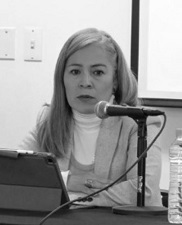
Researcher Profile
Alicia Elvira Vélez García
Universidad Nacional Autónoma de México
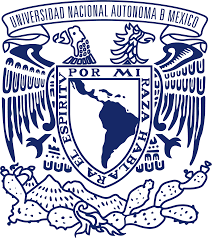
Perhaps since I studied high school (and perhaps from an early age), without knowing it, I observed the behavior of people, their actions, their emotions and their behavior in general. With absolutely no professional interest and also without knowing it, I surely began to trace my steps towards psychology, since indeed my university choice was the career of Psychology.
Around 1994 I became aware that I was studying at the National Autonomous University of Mexico (although I had been doing it since high school), this would gain more strength and would give rise to my sense of belonging to this institution, which is considered the highest house of studies in my country. I am proud of my house of studies and today it is also my place of work.
My first formal approaches to a specific field of psychology occurred early, already in 1995 I entered the field of Behavioral Pharmacology and Neurosciences having only three semesters in my academic history. This opportunity provided by my first tutor gave me the opportunity to learn more about brain functions, behavior and in general the experimental paradigms in this field; however, after two years, I recognized that basic science would not allow me to study cognitive processes as I wished, that is, in human beings. It was around 1997 that I met Dr. Feggy Ostrosky’s research lines and I sought to approach her without imagining that she would become a mentor during the following years and would also totally mark my passion for neurosciences, but above all, for Neuropsychology. In her research lab I had great experiences participating in many research projects and currently she is still a mentor for me.
This is how my current career in the field of Behavioral Neurosciences and clinical and experimental neuropsychology began. My first interest and work dealt with the study of the development of attention in children and adolescents from a neuropsychological approach, then followed the study of the neuropsychology of moral emotions and the neuropsychology of addictions. These works were developed while I was doing my undergraduate (1994-1998), doctoral (2002-2006) and postdoctoral (2007-2009) studies. At the same time, as part of this research laboratory, I participated in several research projects on literacy and neuropsychology, culture, aging, addictions, neurobiology of violence and in particular, in the development of neuropsychological assessment tests. My clinical and research work is focused on the study of neurodevelopment and adulthood.
At the same time that my training was being strengthened, I began to join the teaching profession; while still an undergraduate student, in 1997 I began my teaching career at the Faculty of Psychology of the UNAM, starting as a lecturer and later as a Full-Time Professor. Formally, I have been teaching and researching for more than 20 years. Also, in my last semesters of my career I had at least two years of training in Cognitive Behavioral Intervention with tobacco patients and that gave me the opportunity to work for two years in the Tobacco Clinic of the National Institute of Respiratory Diseases as an assigned Clinical Psychologist.
Outside my university, I have a long history of collaboration with clinical and research groups at the National Institute of Medical and Nutritional Sciences “Salvador Zubirán” and we have collaborated in projects on differentiated thyroid cancer, evaluation of children of mothers with kidney transplants and patients with metabolic diseases such as diabetes and insulin resistance. I also collaborated in the evaluation of patients with cirrhosis who were candidates for liver transplant at the Mexican Institute of Social Security.
I have published in national and international journals, directed bachelor’s and master’s theses and co-tutored doctoral students, mostly in the field of Clinical Neuropsychology, Behavioral Neurosciences, and Clinical Psychology.
I enjoy collaboration, working groups and sharing interest in research, science and teaching.
I am currently a full time professor and researcher at the School of Psychology teaching courses or supervising students in the Graduate Residency in Clinical Neuropsychology and undergraduate Clinical and Health Psychology and I have my private clinical practice. I advise students, serve on various committees, and am involved in institutional and academic life.
Personally, my husband and I enjoy the company of our families, friends and our two dogs (who are a beautiful companion). Many of the most important personal projects in my life have been accomplished with him. The most important, having a family.
We enjoy this stage of our lives traveling together, traveling, meeting new places and new people and enjoying each other.

Researcher Profile
Nancy Nazareth Gatzke Correa
Universidad Estadual del Norte de Paraná
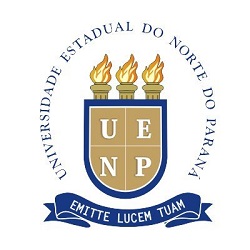
Teacher of the Secretary of Education of the State of Paraná, Physics teacher at Colégio Elo Formação Integral (Anglo System) and Colégio Casucha (Positive System). He participates as a teacher (invited) in the Specialization: Education, Society and Technology (IFPR-Jacarezinho) with the subject: Metacognition and Learning. Has worked as a collaborating teacher of Physics in the Bachelor’s Degree in Mathematics at UENP.
From an early age I was interested in understanding learning processes. As a child, at the age of 11, I already had a space in my house with a blackboard and a table, where I helped children in the neighborhood who had difficulties, at school I participated in study groups and depth with my classmates. the classroom and worked with private lessons oriented to the teaching of mathematics, and in high school, in addition to mathematics classes, also taught physics.
When I finished high school, I looked for a course that would allow me to continue teaching, so I enrolled in Science at the State University of Northern Paraná (UENP), and then I completed my degree in Physics, after completing my degree (2000), I started teaching Physics in the private network, teaching Science and Physics. In 2009 I joined the Department of Education of the State of Paraná, as a Physics teacher, where I work more frequently in teaching Mathematics. In elementary education I continue as a teacher in the same schools until today. In the period 2020/2022, I worked as a temporary teacher, in the Bachelor’s Degree in Mathematics at the State University of Northern Paraná, with the subject of Physics, and, currently, I am a Teacher (invited) in the Specialization: Education, Society and Technology at the Federal Institute of Paraná – Jacarezinho Campus (IFPR) with the subject: Metacognition and Learning.
My research quest begins with trying to understand teaching strategies, in 2013 I completed a specialization in “Methodology of Teaching Mathematics and Physics” at FACINTER, which did not address my conflicts and frustrations with insufficient student learning.
With the years of teaching and the challenges in the teaching and learning process, added to the failures of many students in learning Physics and Mathematics, I decided to do academic research, so I enrolled in the master’s degree in the Science Teaching and Mathematics Education program. At the State University of Londrina – Paraná (UEL), I focused on studying the concept of metacognition by Flavell and other authors and learning processes (ILIRES, 2013), on the way I understood that to learn it is necessary to master a relationship (CHARLOT , 2000) and thus I dabbled in the concept of relationships with knowledge by Arruda, Lima and Passos (2011), which allowed me to understand the composition of the metacognitive process and relate them to relationships with knowledge, in addition to delineating the metacognitive profile. of a group of students through a reflective group interview that allowed the culmination of my dissertation in 2017, whose title was: PERCEPTIONS AND REFLECTIONS OF HIGH SCHOOL STUDENTS ON THE METACOGNITIVE PROCESS OF LEARNING IN PHYSICS.
Then, I continued the PhD project with the same topic, conducting a slightly more robust research, with data collection over three years, theoretically and empirically investigating the concepts of metacognitive knowledge, metacognitive skills and metacognitive expertise, based on studies by Anastasia Efklides. and Tarricone, and on data collected from high school students. In this study I present a model of the fundamental processes of metacognitive learning, inspired by Ilires (2013), which was the basis for proposing a detailed metacognitive system representation by means of a metacognitive system map, understood as a complex and elaborated system. Reflective network acting on the cognitive system through the interaction of incentives: reflective, conative, complex problem solving and feeling of satisfaction or dissatisfaction when solving a problem, the thesis was completed in 2021, with the title: MAPPING THE PERCEPTION OF THE METACOGNITIVE SYSTEM IN PHYSICS LEARNING: A STUDY OF SECONDARY SCHOOL STUDENT REPORTS.
After finishing my PhD, I continued research in metacognition participating in the EDUCIM-UEL research group led by Dr. Sergio de Mello Arruda and Dr. Marinez Meneghello Passos (my master and PhD advisor), and started my participation in the GruPECT research group. -UPF research group led by Dr. Cleci T. Werner da Rosa and Dr. Luiz Marcelo Darroz, as well as participating in a larger group of discussions on metacognition coordinated by Dr. Cleci T. Werner da Rosa together with the researchers: Dr. Mauricio Abreu Pinto Peixe, Dr. Mauricio Abreu Pinto Peixe, Dr. Mauricio Abreu Pinto Peixe and Dr. Mauricio Abreu Pinto Peixe. Mauricio Abreu Abreu Pinto Peixoto from the Federal University of Rio de Janeiro; Dr. Jesus Cardoso Brabo from the Federal University of Para; Dr. Italo Gabriel Neide from the University of Vale do Taquari; and Dr. Solange W. Locatelli from the Federal University ABC.
I continue to research metacognition in learning processes, producing articles and monitoring the progress of research in the groups in which I participate.
ORCID: https://orcid.org/0000-0002-8160-1849
Google Scholar: https://scholar.google.com/citations?user=4xTVn8EAAAAJ&hl=pt-BR
ResearchGate: https://www.researchgate.net/profile/Nancy-Gatzke-Correa-2
Nancy Nazareth Gatzke Correa
Teacher of the Secretary of Education of the State of Paraná, Physics teacher at Colégio Elo Formação Integral (Anglo System) and Colégio Casucha (Positive System). He participates as a teacher (invited) in the Specialization: Education, Society and Technology (IFPR-Jacarezinho) with the subject: Metacognition and Learning. Has worked as a collaborating teacher of Physics in the Bachelor’s Degree in Mathematics at UENP.
